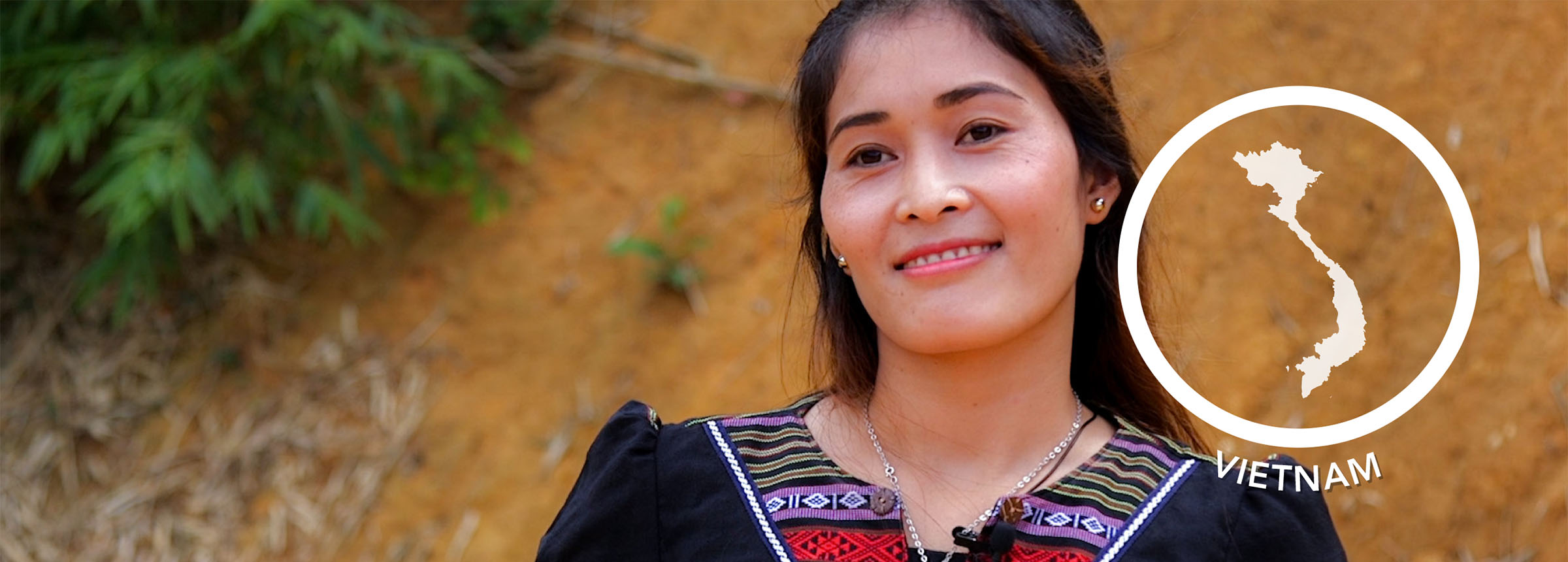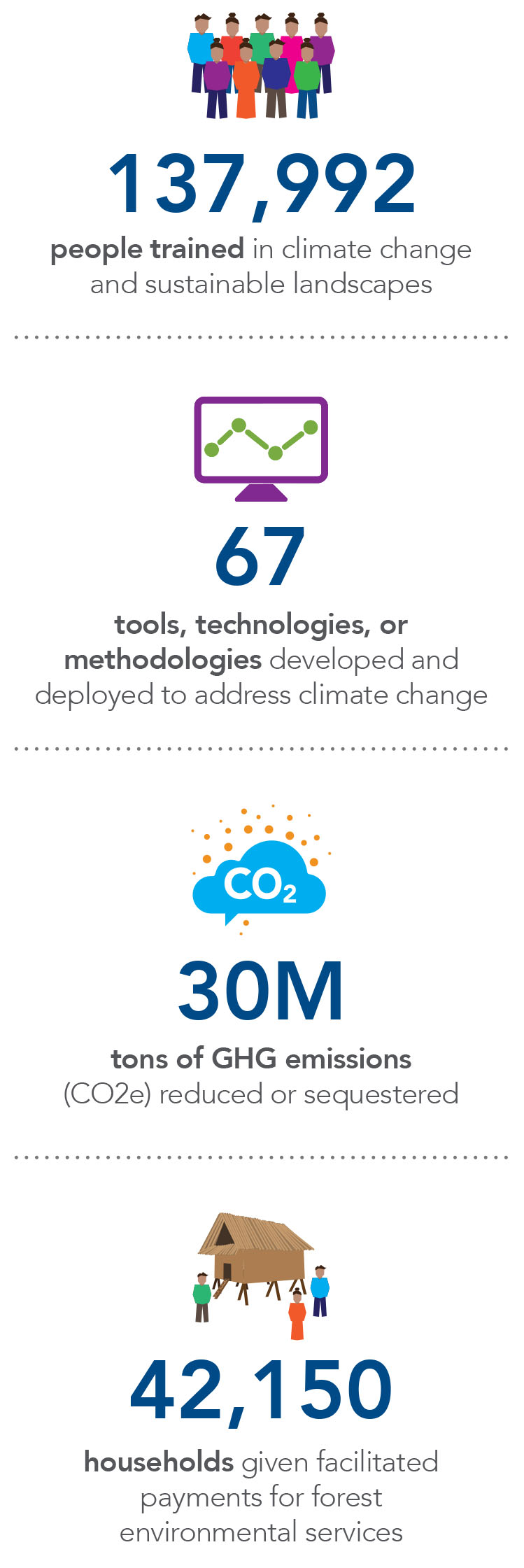
Protecting Nature and Preserving Livelihoods in Vietnam
 PROJECT NAME: Vietnam Forests and Deltas
PROJECT NAME: Vietnam Forests and Deltas
SYNOPSIS: The payment for forest environmental services (PFES) system is an important initiative of the USAID Vietnam Forests and Deltas Program, which supports Vietnam’s transition to resilient, sustainable development
YEARS ACTIVE: 2012-2021
FUNDER: USAID
Vietnam’s Payment for Forest Environmental Services (PFES) system, implemented by Winrock’s USAID-funded Vietnam Forests and Deltas project, provides around $130 million a year to more than 500,000 Vietnamese households for their work protecting forests. It’s money that flows from hydroelectric plant owners and users of environmental services into the hands of people like K Lũy.
K Lũy wears her reverence for Vietnam’s forests and the life systems they support on her skin – literally. A member of the K’Ho tribe, a once-nomadic ethnic group in Vietnam’s Central Highlands, Lũy’s traditional, hand-woven dress is adorned with patterns and symbols representing birds, mountains and trees. The importance of the natural world to the culture and livelihood of the K’Ho is something Lũy learned early. “When I was small, every time I went with my parents to the field, my parents would show me several kinds of tree and told me to take care of them so that they could grow up, just like me,” she remembers. Today, Lũy imparts the same messages to her nine-year-old daughter and six-year-old son.
But the tangible importance of healthy forests, as well as the need to actively protect them and responsibly steward natural resources, is more apparent now than ever to Lũy, her family and community. Lũy and many of her fellow K’Ho earn a significant portion of their income by self-patrolling the forests near the village of Kalatangu. The money makes a big difference in Lũy’s daily life, and is helping her to lay the foundation for her children’s future.
“Since we mostly do farming and we only earn a living from coffee and rice, an additional source of income from the forest for the remaining months is really necessary,” she says. “It helps us with household spending, schooling for children, and daily food.” As critical as the income from PFES is on a personal level, Lũy’s convictions about the importance of forest conservation transcend her own circumstances.
So far, the project has helped more than 204,700 people learn about and implement environmental risk reduction practices, developed 100 plans and policies focused on environmental protection, and provided remuneration for forest protection services to more than 21,160 households.
In addition to directly impacting communities and individuals like Lũy who are dependent on forests for their livelihoods, PFES is supporting Vietnam’s transition toward resilient, sustainable development. The first phase of the project (2012-2018) helped to emplace national policies and strategies enabling Vietnam’s government to respond to fast-moving environmental changes, with a focus on forestry, agriculture, disaster risk reduction and improved livelihoods. The second (and current) phase of PFES (2018 through mid-2021) focuses on ensuring that Vietnam’s payments-for-services system remains an effective and lasting tool to achieve the country’s environmental and socioeconomic goals.
Asked if she has a message for those living far from the hills of Lam Dong Province, Lũy’s response is simple.
“Let us join hands to protect our forest,” she says. “If we have forests, we will have a green, clean and beautiful earth, as well as healthy air.”
